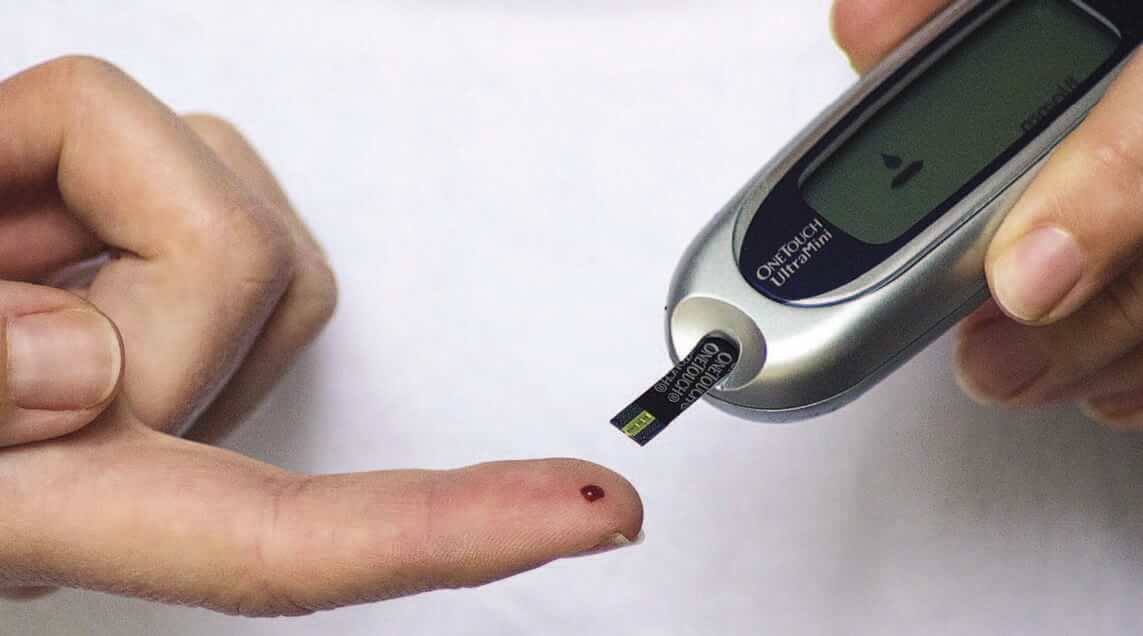
When an asylum seeker with diabetes was unable to bring his glucose monitor across the border, his diabetes care was complicated. Diagnosed with Type I diabetes in his youth, Benjamín* had been carefully maintaining his glucose levels for years. Before his migration, he used his monitor consistently to determine his blood sugar, but during his migration, and after crossing into the United States, when he no longer had his monitor, he was placed into a state of uncertainty, needing to maintain proper levels through guesswork based on how he was feeling. After Benjamín crossed into the United States, he asked for asylum and was brought into detention. He was processed and released into the US to await his immigration hearing. At this point, he was triaged at a small medical station within an immigration shelter, where he told the clinician that he no longer had his monitor. It is unclear how or when he was separated from his monitor.
Without his glucose monitor, Benjamín “would be applying the insulin blindly, especially given that he would have no idea what his glucose levels are at mealtime,” said Laszlo Madaras, MD, MPH, Chief Medical Officer for MCN. “It could be very dangerous if he has not yet adjusted to a daily routine. Using the wrong amount of insulin could lead to diabetic coma, or even death in extreme cases, due to dangerously low blood sugar." Patients with constantly elevated glucose levels, on the other hand, face complications such as heart disease, stroke, kidney damage, eye damage (retinopathy), and nerve damage.
The clinician at the immigration shelter registered Benjamín with Health Network, Migrant Clinicians Network’s virtual case management system, in order to ensure that Benjamín could access care after he left the immigration shelter and migrated on to his receiving community in the US.
Health Network Associate Joshi Covarrubias was assigned to assist Benjamín. Covarrubias’ goal was to find Benjamín a medical home at a community health center that, through medication and diabetes care support, would stabilize his condition for the long term. Covarrubias would also maintain contact with Benjamín during and after his migration to answer questions, ensure barriers to care are removed, and provide other culturally contextual support.
“I started calling different clinics like I normally do, but it was hard to get him into care. Every clinic that I called in his area was so backed up that they didn’t have any availability. There was one clinic that told me that they couldn’t get him into care until 2025,” said Covarrubias. This was in October 2023, meaning that the patient would not see an affordable clinician for over a year. Meanwhile, Benjamín was close to running out of insulin.
Covarrubias continued to reach out to clinics. Eventually, he was able to find a clinic that would be able to take Benjamín as a patient, with the initial appointment scheduled for several months out. This community health center, however, was able to do more for Benjamín than to give him an appointment. Benjamín had been relying on a dwindling supply of his medications, a Humalog KwikPen and Lantus, both short and long duration forms of insulin. He was also directed to get a new glucose monitor. The community health center referred Covarrubias to a local urgent care center. With Covarrubias’ assistance, Benjamín was able to secure a new low-cost prescription with the urgent care center, to avoid running out of insulin before his community health center appointment. Covarrubias will keep Benjamín’s Health Network case active until he is integrated into care at his new location and stabilized his condition, after which he will close the case.
Learn more about Health Network: www.migrantclinician.org/healthnetwork
Donate to Health Network to support migrants in finding care at their next destination: www.migrantclinician.org/donate
*Name has been changed to protect the patient’s identity.